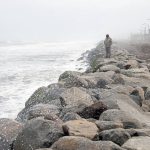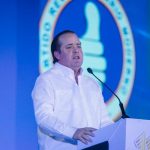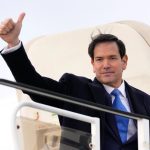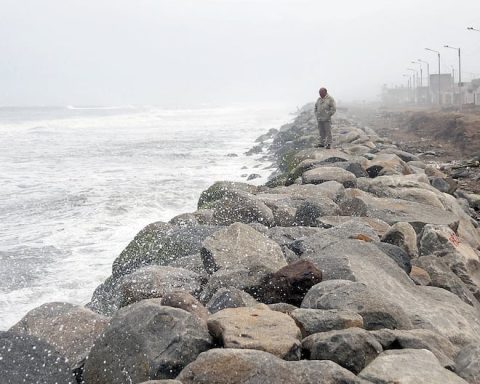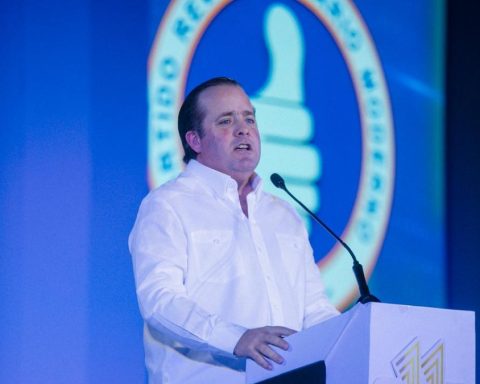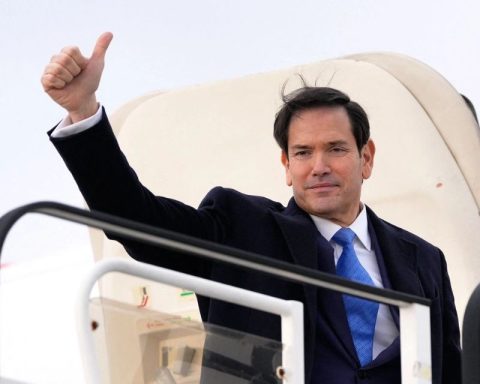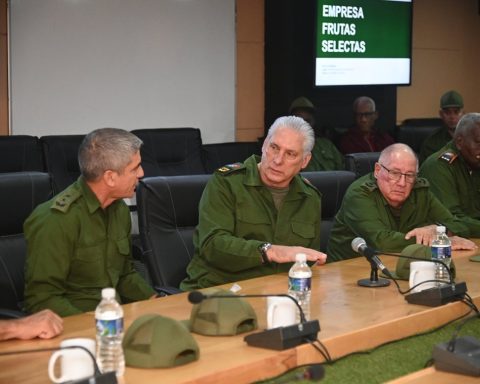Costa Rica voted this Sunday to elect a new president among 25 candidates and without any favorite to take charge of the economic crisis that affects one of the most stable democracies in Latin America, which makes it possible to foresee a second round on April 3.
According to the Supreme Electoral Tribunal (TSE) all the voting tables were installed and a massive turnout is expected, on a day where the Congress of 57 deputies is also elected.
“Costa Ricans have gone out to vote early,” said TSE leader Eugenia Zamora. Long, flowing lines were seen at voting centers in San José.
“Voting is the most important weapon we have to solve problems, we can’t complain later. We have to solve poverty and create jobs for people,” said Francisco Zeledón, 35, the first voter at his polling station.
Former center-left president José María Figueres, who leads the polls with 17% of supporters, was one of the first candidates to cast his vote, and he did so in the town of La Lucha, from which he is a native, a rural area to the southwest of the capital.
“This country has a million and a half people living in poverty and half a million in extreme poverty. There is a lack of housing solutions of 160,000 homes. We have never experienced these things in this magnitude in this country,” said Figueres.
Some 3.5 million Costa Ricans out of a total of 5 million will be able to vote until 6:00 p.m. local time (00:00 GMT). The first official results will be known three hours later.
Oversupply of matches
Figueres wants to avoid a second round and invited voters to support him. He would need to accumulate 40% of the votes, which, according to experts, will not be possible due to party fragmentation.
Then he visited the tomb of his father, former president José Figueres Ferrer, in the same town, who abolished the Army in 1948.
Second in the polls is the Social Christian Lineth Saborío, with 13%, who carried out press activities before voting.
Also in the early hours of the day, the conservative evangelical Fabricio Alvarado, candidate for New Republic, voted third in the polls with 10.3%.
“It has been a physically tiring campaign, but we are happy and with the expectation of achieving the goal and winning these elections,” said Alvarado after voting.
The other candidates with possibilities are the right-wing economist Rodrigo Chaves (8.2%) and the leftist José María Villalta (7.6%).
“I hope that those who win really think of the people and not of themselves,” said retiree Mayra Sánchez, 77, who came to vote early at a school in the canton of Moravia, San José.
Citizen discontent translates into the progressive increase in abstentionism, which has grown since the 2010 presidential vote, reaching 34.3% in 2018.
For this new election, experts expect a similar percentage.
Return of the traditional
For analysts, the large number of candidates is also a reflection of a country that, despite its stability, suffers from enormous political mistrust.
“No one is guaranteed in the second round. There is a large percentage of voters who will decide at the last moment (31.86% undecided, according to CIEP-UCR). It is difficult to propose scenarios, but I think there will be two antagonistic proposals,” he said. the political scientist Gina Sibaja.
One of the scenarios in the ballot could confront the traditional parties: the center-left National Liberation Party (PLN), from Figueres –president in 1994-1998–, and the center-right Christian Social Unity Party (PUSC) from Saborío –vice president in 2002-2006–.
This would bring back to the country the bipartisanship of the 20th century, which was broken with the victory of the Citizen Action Party (PAC), which governed the last eight years but today is unpopular and has no chance of victory.
The outgoing president, Carlos Alvarado, who voted in Pavas, a popular neighborhood in San José, highlighted the democratic solidity of the country.
“We are among the strongest democracies in the world and today we reaffirm that with our vote (…) Other countries do not have this free option. We have elections continuously since 1953,” he said.
Crisis
Known for being the first country in Latin America in the 2018-2020 global happiness ranking and its environmental activism, Costa Rica sees its joy overshadowed by a severe financial and social crisis.
Unemployment (14.4% in 2021), poverty (23% in 2021) and an economy with a public debt equivalent to 70% of GDP set off the alarms of multilateral organizations.
The situation worsened with the covid-19 pandemic, which hit tourism hard, one of its main engines.
In addition, in the last 13 years, two former presidents faced trials for corruption (one was convicted) and in 2021 two cases of million-dollar irregularities broke out in the public works sector, with ministers involved.
